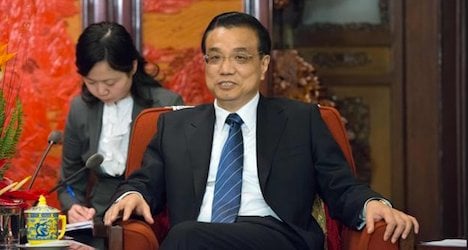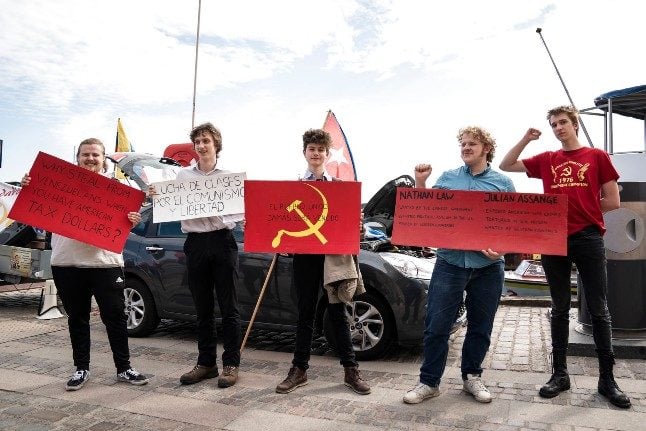Li's nine-day tour starts in India and Pakistan but In Europe, his first stop is Switzerland, with which China is negotiating a free trade agreement.
Swiss Economy Minister Johann Schneider-Ammann confirmed on Wednesday that Switzerland and China are moving closer to signing a trade deal.
China is Switzerland's sixth biggest export market and a number of Swiss sectors, such as the watch, pharmaceutical and chemical industries, stand to gain from removal of Chinese duties.
Luxury watches from Switzerland worth more than 1,500 francs are hit with a 20 percent tax in China, for example.
Analysts say Swiss companies such as Swatch, Richemont and elevator company Shindler would reap benefits from any lowering of Chinese tariffs.
The two countries have been negotiating a free trade deal for three years.
During his visit to Switzerland, Li is set to meet with Swiss President Ueli Maurer, Vice-President Didier Burkhalter and Schneider-Ammann.
"Li's visit to Switzerland will push forward bilateral ties and make bilateral cooperation a model of friendly exchanges between countries with different social systems," Song Tao, Chinese deputy foreign minister said, according to the China-based Xinhua news agency.
Song said the two sides will sign a series of cooperation documents involving the economy and trade, finance, education, culture and climate change.
The Swiss government said a ninth round of free trade negotiations took place last week and the federal cabinet looked at a proposed free trade document this week.
The Xinhua news agency said the two sides have narrowed their differences in a number of areas.
These include goods, the service trade, rules of origin, trade facilitation, intellectual property and competition policy, a Chinese official said.
Beijing last month inked an FTA with Iceland, its first with a European country.
Li will finish his tour in Germany, China's largest trade partner in Europe with bilateral commerce totalling $161.1 billion last year — 29.5 percent of China's total trade with the EU.
The visit, which will include talks with Chancellor Angela Merkel, comes amid an intensifying trade dispute over telecom equipment and solar panels.
Li's journey follows one by Chinese President Xi Jinping to Russia and three African nations in March after the two men assumed their new positions, concluding China's once-a-decade leadership transition.
Since then a long-running border dispute with New Delhi has flared up with an alleged incursion by Chinese troops into Indian-claimed territory in the Himalayas, while trade disputes with the EU have intensified.
The Xinhua news agency said the trips illustrate Beijing's "overall diplomatic strategy, with which the new Chinese leadership aims to show the outside world its commitment to peaceful development".
Li starts his nine-day journey in India on Sunday.
"There are some historical issues between China and India, including the boundary question," deputy foreign minister Song told reporters.
But he underlined their similarities as "ancient civilisations and emerging markets".
The Asian giants are the world's two biggest countries by population, accounting for more than one-third of the world's seven billion people.
China is India's second-largest trading partner, with two-way commerce totalling $66.5 billion last year, according to Chinese Vice Commerce Minister Jiang Yaoping.
It was targeted to reach $100 billion by 2015, he told reporters, adding the goal was "expected to be realized on schedule".



 Please whitelist us to continue reading.
Please whitelist us to continue reading.
Member comments